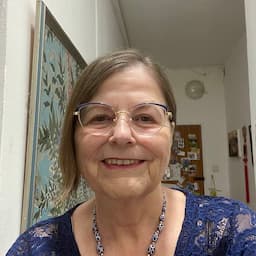The Power of Words: To Know
I remember as a child reading the Bible and passing over certain passages, taking them in my stride. I don’t know why it never occurred to me to ask, “What does ‘Adam knew Eve’ mean?” Perhaps I intuitively knew my mother would give me her standard answer to difficult questions, “I’ll tell you when you are 21.”
Now I’m 62 and I remain in awe at the wonder of God’s love for us, in so many ways. Particularly because God knows me. He is not just acquainted with me or familiar with me. He knows me from the innermost parts of my being to the outward parts. As David once wrote, “LORD, You have searched me and known me.” Psalms 139:1 (HCSB)
The Hebrew: lada’at (לָדַעַת)
Many people have heard sermons on this verb, to know. The word David uses in Hebrew is the verb lada’at (לָדַעַת). In Hebrew, this word for to know is much deeper than general knowing in English—it is much broader, more personal, and quite intimate. In fact, in Biblical Hebrew, knowing (lada’at) involves personal intimacy. God said of Abraham “I know him” (Genesis 18:19), meaning he had a very close relationship with Abraham. Of Moses, we read, “I know you by name, and you have also found grace in my sight ” (Exodus 33:12). In Genesis 4:1 it says that Adam “knew Eve his wife” implying an intimate physical relationship.
The Intimacy of “Knowing” Touches All of Life
I suspect many of you already know this. I know I did when I first came to Israel. I’d heard lots of teaching about it. But when I actually met this verb, lada’at, I was stunned by the depth of meaning this word carries. You see, in Hebrew, most words have a three-letter root which is used as the foundation for many other words. The following table gives just a few examples of the words formed from the root of la-da’at, which is yda (ידע).
Transliteration
Hebrew
Meaning
Yeda, Ydi’ah
יֶדַע, יְדִיעָה
Knowledge, know-how, awareness
Da’at
דַעַת
Knowledge, wisdom
De’ah
דֵעָה
Opinion
Mada’
מַדָע
Science
Meda’
מִדָע
Information
Modern Hebrew has maintained this idea of intimate knowing via the many words used to represent the knowledge gained by learning, as well as the term for science (mada). Students are expected to know their subject matter and are graded accordingly. Experts are expected to have a full understanding of their field.
Practical Application: God Knows You and Me
There is clearly a deep spiritual connotation to the Biblical word for knowledge. Perhaps one of the best known verses expressing God’s love for his people is in Jeremiah 29:11. “For I know (yada’ti—יָדַעְתִי) the plans I have for you, declares the Lord, plans for welfare and not for evil, to give you a future and a hope.”
God has intimate knowledge of you and of His plans for you. Think about that. He has the wisdom, knowledge, and awareness to think through everything concerning you. He knows the plans He has for you. Yes, He knows you, but have you ever thought about His plans for you? His plans are already in place, signed, sealed, and being implemented in your life—even if you don’t feel like this is the case.
Do you begin to sense of the wonder of David as he wrote Psalm 139? Surely this Psalm beautifully and powerfully sums up God’s knowledge of you.
LORD, You have searched me and known me. You know when I sit down and when I stand up; You understand my thoughts from far away. You observe my travels and my rest; You are aware of all my ways. Before a word is on my tongue, You know all about it, LORD. You have encircled me; You have placed Your hand on me. This extraordinary knowledge is beyond me. It is lofty; I am unable to reach it.
Psalms 139:1–6 HCSB
May this knowledge encourage each of us today, and motivate us to want to know Him better.
Learn More
For further reading: Psalm 139, and J.I. Packer’s book, Knowing God.






